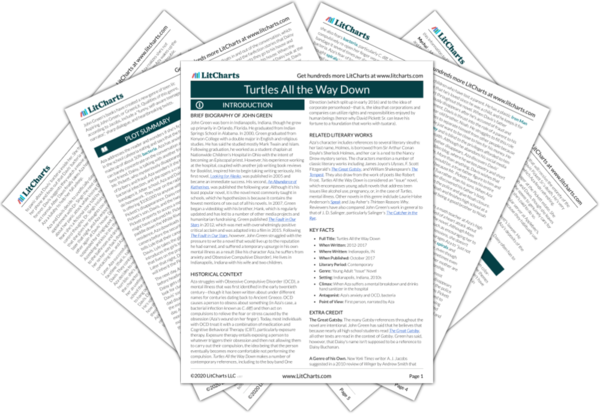Davis says that many old friends have been in touch over the last week but insists he doesn't know where his father is.
Daisy suddenly appears and explains the "truth”: she heard about
Mr. Pickett on the radio, Aza said she had a crush on Davis when they were kids, so Daisy arranged for them to shipwreck their canoe, just like in
The Tempest, and now Aza and Davis can live happily ever after. Daisy promptly disappears again.
